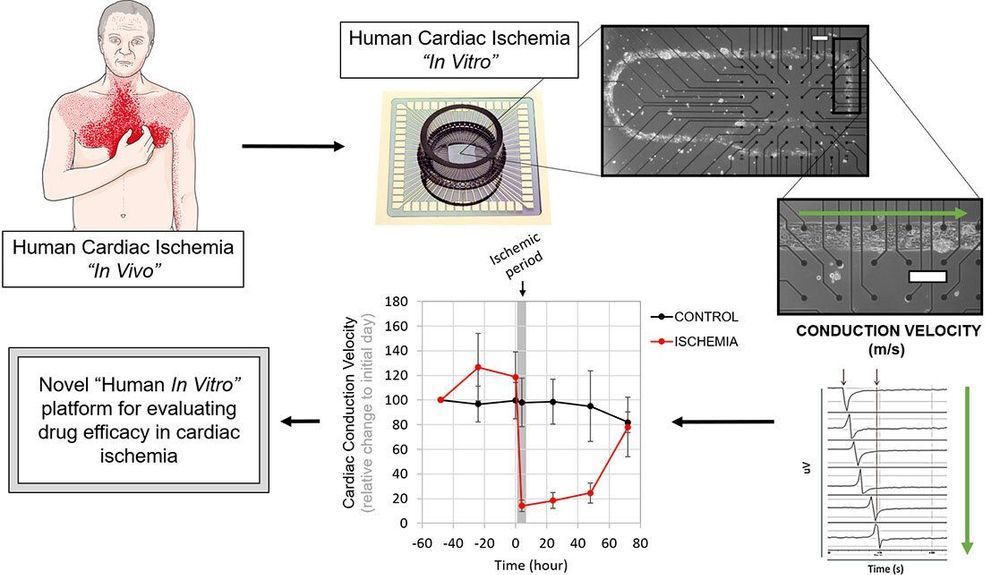Animal models provide benefits for biomedical research, but translating such findings to human physiology can be difficult. The human heart’s energy needs and functions are difficult to reproduce in other animals, such as mice and rats. One new system looks to circumvent these issues and provide a functional view of how different treatments can help ailing cells in the heart following oxygen and nutrient deprivations.
Researchers have unveiled a new silicon chip that holds human lab-grown heart muscle cells for assessing the effectiveness of new drugs. The system includes heart cells, called cardiomyocytes, patterned on the chip with electrodes that can both stimulate and measure electrical activity within the cells. The researchers discuss their work in this week’s APL Bioengineering.
These capabilities provide a way for determining how the restriction of blood supply, a dangerous state known as ischemia, changes a heart’s conduction velocity, beat frequency and important electrical intervals associated with heart function.
